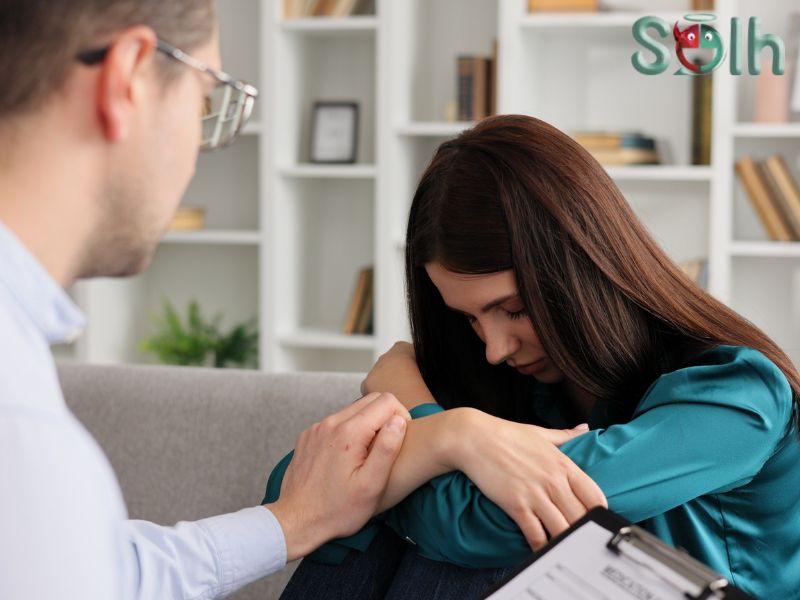Every relationship experiences its fair share of difficulties, disputes, and disagreements. Extremely tense relationships, however, are unhealthy.
There are times when bad events, including the death of a loved one, financial difficulties, or job loss, may occur in a relationship. Being in a challenging situation at the same time as a relationship is not always an indicator that it is harmful. But when do relationship problems stop and unhealthy relationships start?
There are warning signs of stress in a relationship and red flags that might arise throughout a relationship that may lead to an unhealthy situation. If you're interested in learning about relationship stress symptoms that are making you uneasy, we've put up a complete guide to help you better understand your situation.
1. You overthink the things you want to say
Every relationship needs an appropriate amount of communication to be healthy. However, if you feel as though you can't even convey what you're thinking or want to say, you can tell that your anxiety level has escalated.
If you think about it, you might also control your feelings. Perhaps you feel shut off when you try to bring up a subject that troubles you.
If you feel that you are unable to communicate what you think or want to say because you are concerned about your partner's reaction, it may lead to regular feelings of worry. Nobody should have to navigate their relationships on a tightrope every single day.
2. You are unable to compromise in a constructive manner
Being stubborn and unable to compromise in a relationship is one thing, but constantly caving to your partner's demands is quite another. That, in fact, isn't even a compromise in your eyes; it's just giving up, which makes you lose a part of who you are and makes you feel more anxious.
3. You're constantly worried about your relationship
Usually completely baseless, the worry that your partner wants to end the relationship can cause extra strain in the union. In most cases, there are obvious symptoms that a relationship isn't working out or that your spouse may wish to break up. Take your relationship at face value and assume that your spouse wants to be with you in the absence of these warning flags.
4. You are working far harder on the relationship than your partner is
Realizing you are the only one trying in a relationship is among the worst things that may occur. It is upsetting to believe that the other person does not understand the value of cooperating on a project. You may become concerned due to your partner's ongoing lack of effort.
5. Not being present for the fun times
You can manage this relationship anxiety by keeping your attention on the present moment and refraining from worrying about the future.
6. Evaluating your relationship against others
If you experience relationship stress, you could be tempted to compare your current connection to relationships you have had in the past, relationships you have with friends, or your idealized view of partnerships. If you behave in this way, your spouse or your relationship won't be successful. Instead of comparing yourself to others to cope with stress, put more effort into your connection.
7. Anxiety relating to sex
In a new relationship, getting sexually intimate with your spouse can definitely be stressful. These feelings of apprehension should go away as you and your partner experiment with sexual intimacy. If they don't, that can mean you're having relationship anxiety. Make sure the physical intimacy is enjoyable for both of you by being upfront and honest with your spouse about what is generating the anxiety so that you can work through it together.
There are the following signs of anxiety in relationships
1. Your prior romantic partnerships
Even though you think you've mostly moved on from the things that happened in the past, you might still be affected by your recollections of those times. You might be more prone to experiencing relationship anxiety if a former partner:
-Lied to you about their feelings for you
-Abruptly dumped you
-Cheated on you
2. Attachment Design
The attachment pattern we develop as children can have a big impact on how we connect as adults. If your parents or other primary carers were prompt in attending to your needs and provided love and support, you probably developed a secure attachment style. If they don't routinely meet your needs or allow you to develop freely, your attachment type can be less secure.
Are challenging relationships affecting your health?
You should be aware of relationship warning signs because tense relationships may make you feel more worried.
Even if it's challenging, you should consider breaking up with your partner if you notice warning signs in your relationship and they dismiss your concerns. You must always remember that your thoughts are important and that you should take all reasonable precautions to preserve your energy and mental health.
Conclusion
It can be challenging to accept that no relationship is completely safe.
There are methods you can use to lessen relationship anxiety so you may spend more time with your partner, truly enjoying each other's company, even if you might not be able to avoid it.
It can be challenging to accept that no relationship is completely safe. Incorporating healthy stress management strategies can play a key role in navigating such emotional uncertainties.
We suggest couples therapy to help treat and manage your relationship anxiety. Connect with our counselors and therapists and have decreased levels of reassurance-seeking and self-silencing.
Trust your gut, ask for help, and download the Solh Wellness App now!



